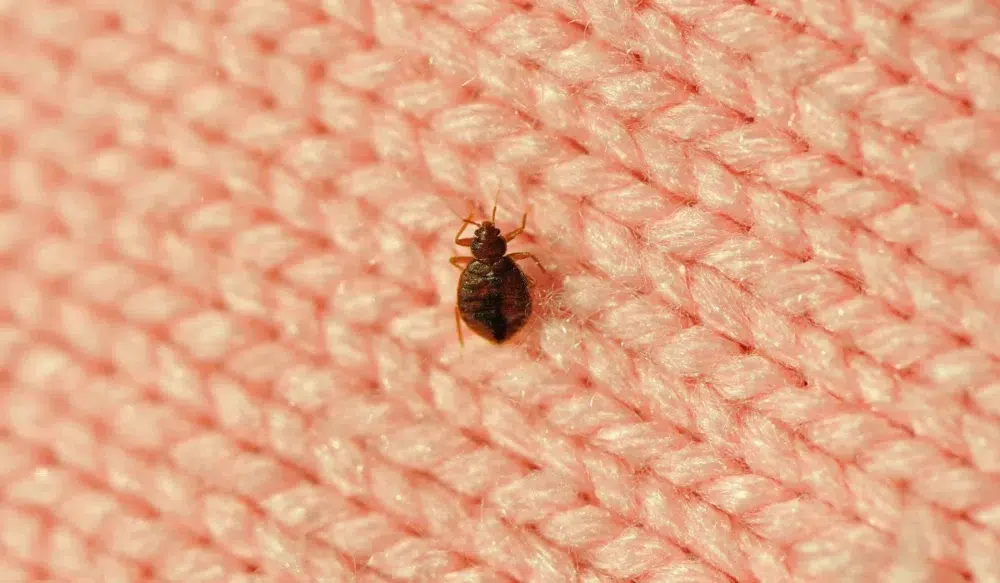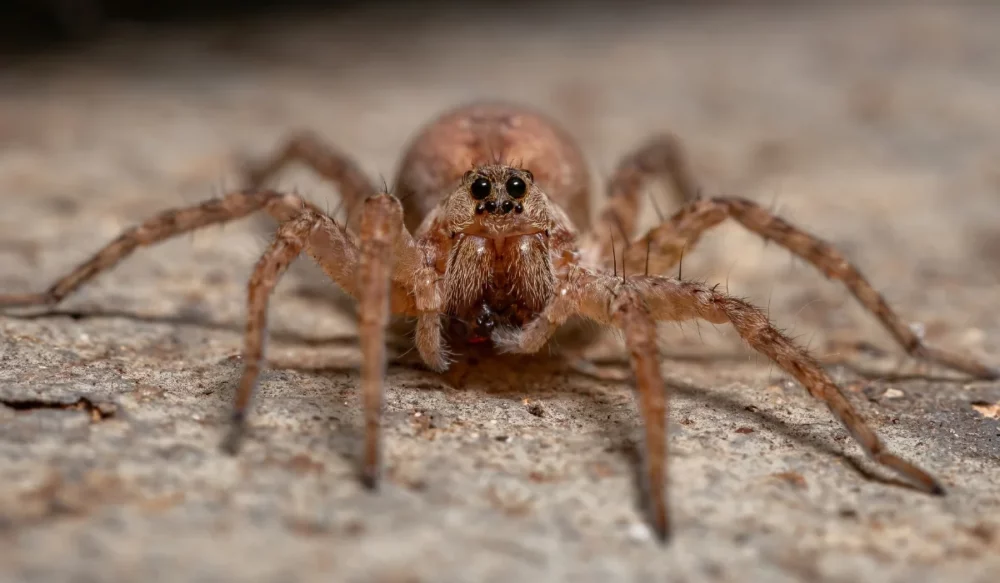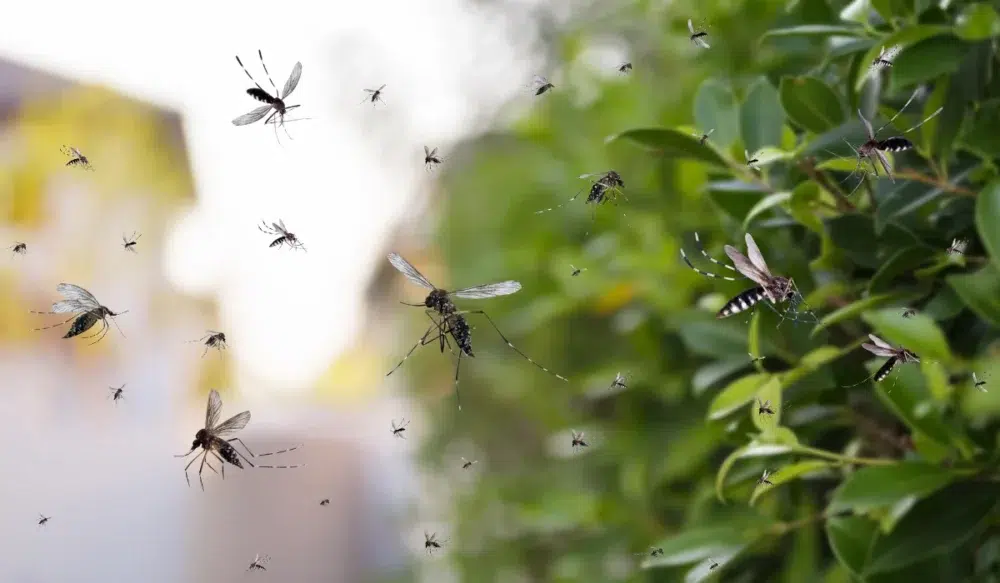If you’re spotting beetles in your Arizona home, you’re not alone. These persistent invaders show up in places like Phoenix, Tucson, and Chandler year-round, but they’re especially active during the summer and monsoon season.
While they might not sting or bite, a beetle infestation in Arizona can damage your belongings and become hard to control without the right strategy.
This guide covers what attracts beetles indoors, which types of beetles are most common in Arizona homes, and what you can do to keep your space pest-free.
Key Takeaways
- Carpet beetles are Arizona’s most common indoor beetle and feed on natural fibers.
- Palo verde beetles emerge during monsoon season and are often mistaken for roaches.
- Beetles are drawn to fabric, food, moisture, and shelter.
- Hiring a professional pest control company is the most reliable way to eliminate a persistent infestation.
Why Beetles Are Attracted to Arizona Homes
Arizona’s desert climate creates ideal conditions for beetles to thrive. Sudden shifts in humidity during the monsoon season often drive them indoors in search of shelter. Cracks around doors, vents, or utility lines make it easy for them to get inside.
Once in, beetles seek out warmth, darkness, and access to food or fabric. Homes with cluttered storage, wall voids, or open pet food are more susceptible. If you’ve seen beetles repeatedly in the same area, you may be dealing with a growing infestation.
The Most Common Types of Beetles in Arizona Homes
Carpet Beetles
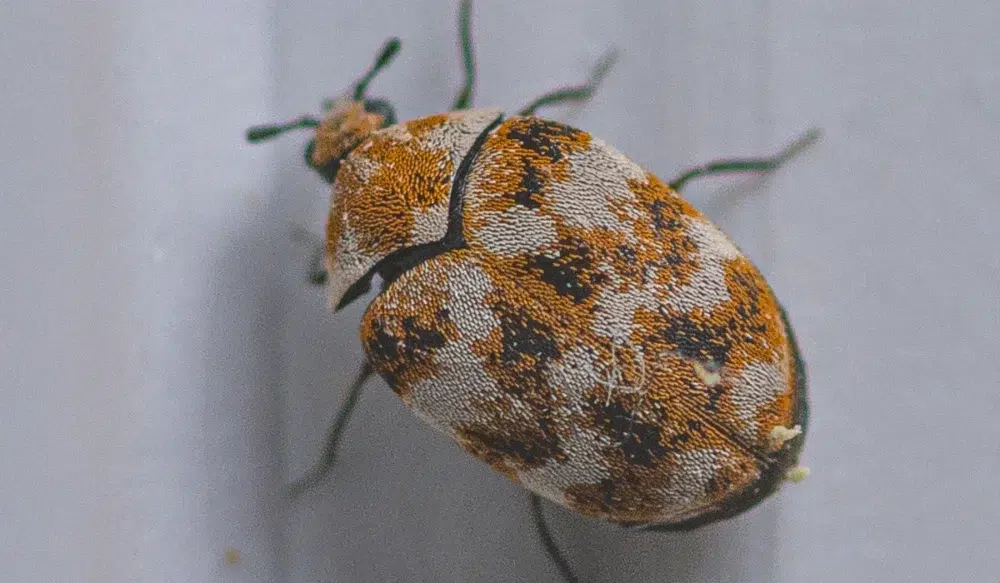
These are the most notorious beetles inside Arizona homes. While adult carpet beetles and blister beetles feed outdoors on pollen, the larvae are the real issue. During the larval stage, they feed on natural materials like wool, fur, leather, and upholstery. They also invade pantries and target dry-stored food.
You may not notice them until you spot their damage, tiny holes in clothing, patches of thinning carpet, or shed skins. As they move into the pupa stage and emerge as adults, the cycle continues unless it’s stopped with thorough treatment.
Palo Verde Beetles
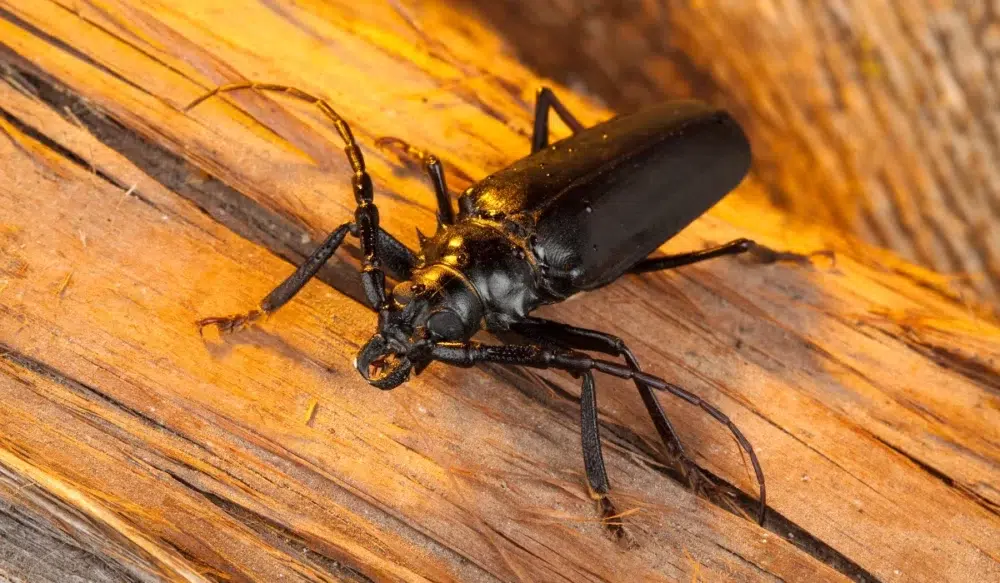
If you’ve seen a large beetle flying awkwardly near your porch light, it was likely a palo verde beetle.
Though they can be alarming in appearance, they don’t infest homes or damage your property. The real action happens underground, where the larvae feed on palo verde tree roots for years before emerging as adults during the summer.
They’re drawn to lights and may enter open garages or rest near doorways, especially after sunset. These beetles are common across the Phoenix metro area.
Bark and Ground Beetles
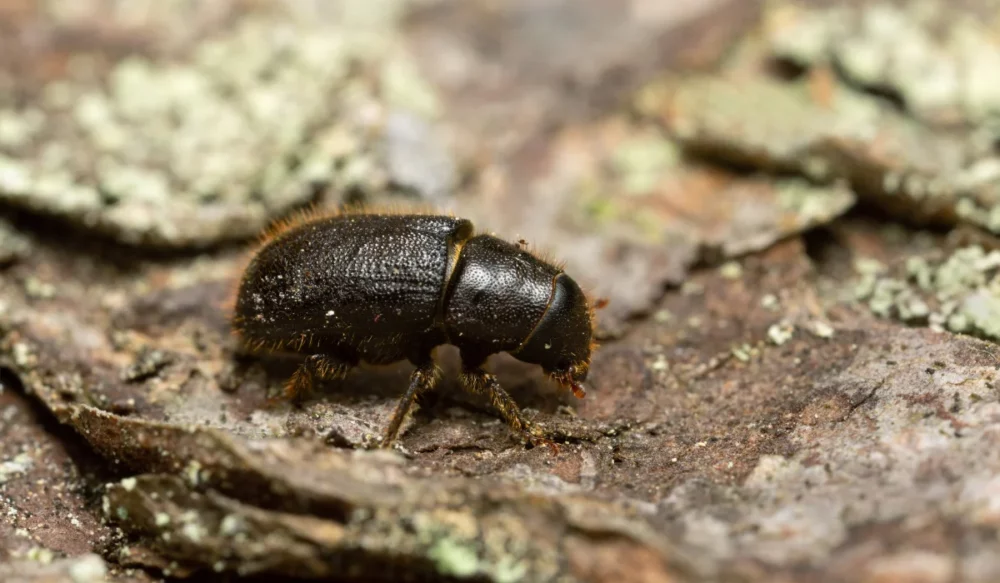
Bark beetles are typically outdoor pests, but they can appear indoors when nearby trees or firewood are infested. Ground beetles, on the other hand, are fast-moving and sometimes enter homes accidentally while hunting other insects.
Neither species typically establishes a colony indoors, but their presence may signal other pest activity or potential entry points that need sealing.
Signs of Infestation
Common signs of infestation include spotting larvae, pupa casings, or shed skins near baseboards, under furniture, or in closets. You might also see damage to rugs, drapes, or stored clothing, especially natural fibers.
In kitchens, pantry beetles and carpet beetle larvae may gather around grains or pet food. Adult beetles are often spotted near windows or around ceiling light fixtures, especially at night.
What Attracts Beetles Indoors
Different species of beetles have different preferences, but most are drawn to quiet, dark areas with access to food or moisture. Fabric-based items, especially those in long-term storage, are prime real estate for carpet beetle larvae. Boxes, air ducts, and cluttered corners offer protection as they develop.
Food attracts many beetles, especially grains, flour, and dry goods stored in unsealed containers. Leftover pet food or birdseed also draws them in. Exterior lighting, moisture from leaky pipes, and yard debris near the home also contribute to indoor activity.
The University of Arizona has documented several beetle species common to the region, with activity peaking during transitional seasons.
How to Prevent a Beetle Infestation
Prevention is key to keeping your home pest-free. Start by sealing gaps around windows, baseboards, and entry points.
Store pantry goods in airtight containers and vacuum often, especially in corners and under furniture. Check for signs of larvae in closets or vents, and clean out any forgotten storage bins.
Cut down on attractants like porch lighting by switching to yellow bulbs, which are less appealing to insects. Outdoors, keep wood piles and palm fronds away from the home’s foundation and inspect palo verde trees for signs of beetle activity.
Why You Should Call a Pest Control Company
If you’re seeing repeated beetle activity, especially in multiple rooms or near fabrics and food sources, it’s time to call in professionals. DIY sprays often don’t reach hidden larvae or eggs, and they rarely break the full life cycle from larva to pupa to adult.
An experienced pest control company like Green Home Pest Control can inspect your home and develop a treatment plan tailored to Arizona pests. Our team uses safe and targeted pest control services to eliminate beetles at every life stage, while also helping you prevent future infestations.
Just give us a call as we serve homeowners throughout Phoenix, Tucson, Chandler, and nearby cities with services built for desert living.
FAQs
What attracts carpet beetles to my home?
Carpet beetles are drawn to natural fibers like wool, fur, and leather. They often enter through cracks and lay eggs in quiet, undisturbed areas. Their larvae feed on fabrics, pet hair, and even lint.
Do palo verde beetles infest homes like termites?
No. Palo verde beetles don’t infest homes or furniture. They live underground and feed on tree roots. The adults emerge during summer and may be drawn indoors by light, but they don’t breed inside.
When should I call pest control for beetles?
If you’re seeing signs of larvae, damage to upholstery, or beetles appearing repeatedly in the same areas, it’s best to contact a pest control company. Professional treatment ensures the beetle life cycle is completely interrupted.

